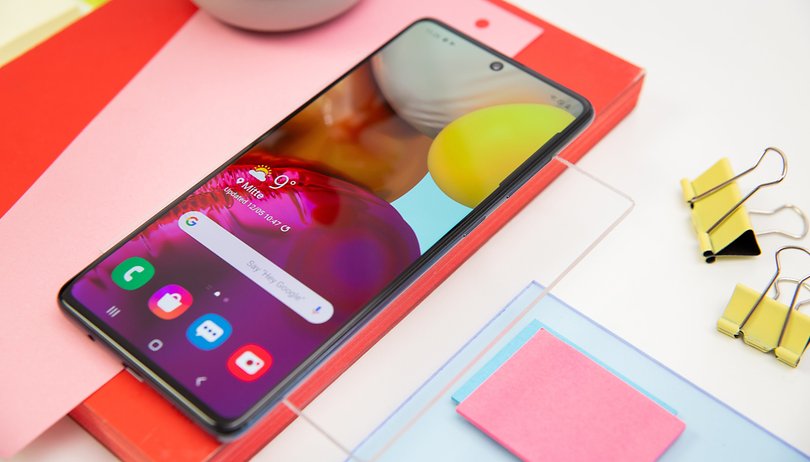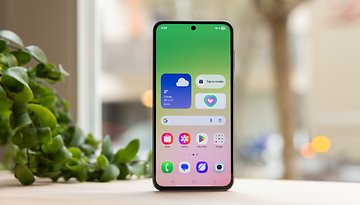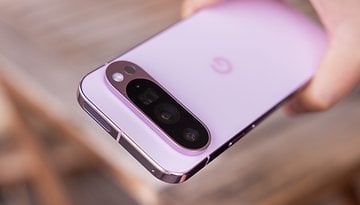Ads in OneUI 2.5: false rumours speak volumes about fed up consumers


After Xiaomi, could Samsung put ads in OneUI? This is what a recent leak showing a screenshot of an ad on the home screen of a Samsung smartphone claimed. A false rumor that was quickly debunked (in part) but which caused hot reactions from users that say a lot about the general rage of the all-out monetization of smartphones.
A supposed leak from an obscure Indian tech site relayed the info on Tuesday, June 9, by American sites such as Central Android and Android Authority. The claim was that Samsung might consider including invasive advertising in its next Android OneUI 2.5 overlay.
In the original Tizen Help, a tech blog based in India with few references and run by two strangers in the technosphere, we can see the home screen of a Samsung smartphone (which looks like the Galaxy S20) blocked by an ad with a 15-second timer.

Ads in OneUI 2.5: a false rumor partly debunked
Imagine an ad that prevents you from unlocking your smartphone unless you click on it or wait 15 seconds before it disappears. Is that where's the world going? Especially when you know that Samsung sells smartphones for $1,300+ and that OneUI is one of the most popular Android overlay on the market?
Logically, the technosphere got carried away, but perhaps wrongly so, as the site dedicated to Samsung, SamMobile, has shown. The first time I heard of it, I debunked what seems to be a joke posted on Samsung's Korean forum and which was taken literally as a leak.
Concretely, according to SamMobile (and I was able to verify it by doing a reverse Google search of the image), all this controversy goes back to a specific post on Samsung's forum in South Korea. In this post, forum members discuss the appearance of an ad in Samsung's native weather application.

Other screenshots were shared by users showing a banner ad at the top of the weather application's home screen. Some comments questioned whether this ad was pushed by Samsung directly or not. Because the company "Weather News", which provides weather data to Samsung for its app, could well have integrated this advertisement itself.
Anyway, this specific case of a Korean advertisement in the Korean native weather app of a Korean Samsung smartphone does not seem to be wrong. But the leak so much shared by the U.S. and European press would only be a parody posted by one of the users in the comments of the forum post. A way to mock Samsung by caricature this advertising faux-pas that would have been "lost in translation", as they say.
The description of the fake leak's image also includes the mention "예시", which literally translates as "example" according to Google Translate. A way to extrapolate and illustrate the potential (but fictitious in this example) drifts that ads in OneUI or native Samsung apps could have on the user experience.
A mistranslated joke full of meaning
So ok, SamMobile's version is convincing and the more than doubtful origin of the initial leak leads us to believe that we're dealing with fake news. Except that if the presence of an ad that blocks the unlocking under OneUI is not proven, the presence of ads in native apps of Android manufacturers is.
Xiaomi has been doing it for a long time already on its smartphones, even if some countries are spared by this economic model for the moment. And while you can disable targeted ads on Android, as XDA journalist Max Weinbach noted on Twitter on Tuesday, "you can disable tracking, but the ads are still there".
And before someone says "wElL yOu CaN dIsAbLe ThEm In SeTtInGs"
— Max Weinbach (@MaxWinebach) June 8, 2020
NO YOU CAN'T. You can disable tracking but the ads ARE STILL THERE. Once again, Samsung SHOULD NOT have ads in ANY stock apps.
This kind of practice allows manufacturers to monetize their smartphones differently and thus drastically lower the price. For example Xiaomi, mentioned earlier, offers some of the best value for money on the market, even when it is possible to remove ads, and Amazon has also made it its business model on its Kindle tablets and electronic reading lights.
- Read also: Why we should only be renting hardware
But it's still a bit of a stretch to involve the consumer in financing a product they've paid top dollar for. "If a product is free, you're the product", we all know this adage that has become commonplace. Except that this logic generally applies to freemium or free models on the web of services that rely solely on advertising or monetizing user data to survive.
We're talking about finished products, smartphones, which you have to buy at a high price. This way of empowering the consumer, to make him bear the burden of making a product profitable in addition to making him pay for access horrifies me! We shouldn't have ads on native Android smartphone applications. And this hype shouldn't be countered with price blackmail: "You want a cheaper smartphone, we'll put ads on you to make up for the lost revenue."
A smartphone is paid for at the checkout, period!
An equally perverse logic is Apple's plan revealed this week to offer interest-free loans to holders of an Apple Card to spread out the purchase of a new iPhone or a Mac. This can be seen as a nice initiative by Cupertino to avoid its customers paying bank fees and interest to finance their iPhone.
But this project is, in my opinion, neither more nor less a technique that aims to make people buy a smartphone at $1,000 to make profitable a banking product to which many customers would otherwise never have subscribed. I'm rambling and better close this parenthesis.
But the fact is that the hot reactions to this false rumor of OneUI 2.5 ads have the merit of reminding us of the fed-up state of a large part of technophiles. There's a real lack of control over products that one has bought and should therefore own as of right, without having to pay a bank or advertising dividends.
This practice makes no sense. "La gratuité, ça se pair" (which translates to: "Free comes at a price," in English), was the title of my Master's thesis on monetizing free online media through advertising. But a smartphone should be paid for at the cash register only, not by untimely ads.



















-
Admin
Jun 11, 2020 Link to commentI have a Redmi 8 and have never seen an ad. Should I ever see one I would immediately react and they would have lost me as a customer and as many other people I could convince. And when I am upset I am very,very convincing